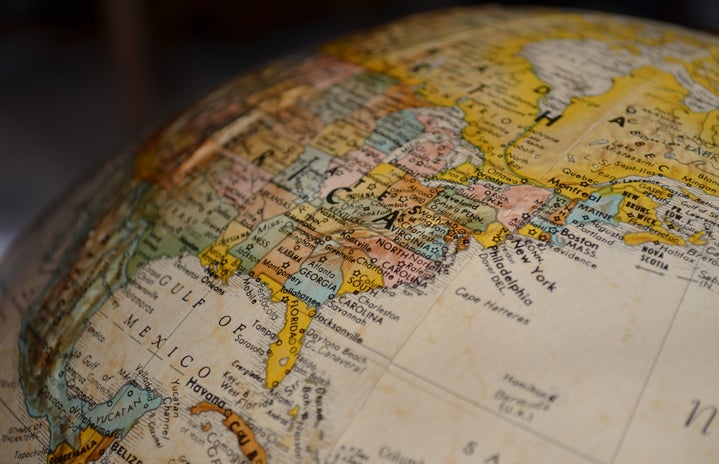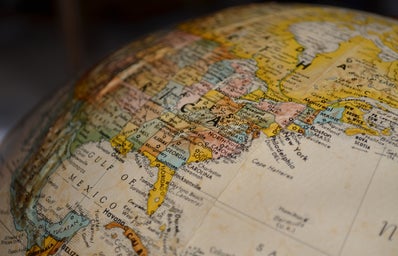Growing up, I always dreaded doing the “Family Tree” assignment in school. Not because I didn’t enjoy a good art project (which I do) or because I feel disconnected from my family (at times, yes), but because beyond my great grandparents, my family has always been a mystery. Not to mention I’ve always struggled with my cultural identity; my mom is white and was born in the United States and my dad was born in Mexico. I never felt like a member of either community; I was always too Mexican to be white and too white to be Mexican.
My family never really had an idea what kind of European we were and I wasn’t connected to my Mexican heritage—no Spanish, no Day of the Dead, no Quinceañera, no Catholicism, no Día de los Reyes, no learning how to make tamales with my grandma. The most Mexican thing about me is my name and the color of my skin.
But I’m not angry at anyone in my family, especially not my dad. I can’t imagine how hard it is to move to another country, especially this one—where xenophobia runs deep and the expectation for immigrants, still, is to assimilate.
Things only got even more confusing the older I got. I grew up in Seattle, which, contrary to its reputation, was not very diverse. I was always one of a small handful of students of color. I’d always felt a sense of “otherness” in the white spaces I occupied, but that otherness was only magnified when I was around other Mexican students because I was never Mexican enough.
Luckily for me, I spent a lot of energy trying not to fit into boxes and expectations, which was pretty successful until I started having to fill out paperwork and quite literally fit into a box. From the SAT to FAFSA to general surveys, without fail the first couple of questions are always something like:
Are you Hispanic/Latino/Spanish/Chicano:
- Yes
- No
What is your race?
- White
- Black
- Pacific Islander
- Asian
- Other
This always confused me because I would answer yes to the first question (although Hispanic/Latino/Spanish/Chicano are all vastly different things. From my understanding, Hispanic means Spanish speaking or of Spanish speaking descent. Latino means from or of Latin American descent. Spanish means from or of Spain. Chicano means American-Mexican.) and then scratch my head at the second question. Technically I’m brown, but I’m also half white, but what does race even mean?
I always had a sense of not belonging and not knowing the full answer to the question “What are you?” So I was always interested in things like Ancestry.com and 23andMe.
Over the pandemic, I let my curiosity get the best of me and I overcame my fear of data breaches (I figured with my internet usage enough tech and governmental forces already have my data and information, so what’s to lose?) and ordered an Ancestry kit. I spit in a tube, sent it to their lab and anxiously waited. I thought if I knew what I was, I would somehow be more connected to myself and my family.
That wasn’t the case.
I was expecting to be Mexican and a conglomerate of European ethnicities like Irish, Spanish and German. To be honest, I don’t know how genetics work—I assumed that because I look like a carbon copy of my dad, from skin color to facial expressions and hair, that the majority of my DNA would be Mexican, so I was surprised when my top five results came back:
Spain 20%
Indigenous Americas – Mexico 20%
England + Northwestern Europe 19%
Scotland 18%
Ireland 13%
I had so many questions and feelings. First I wanted to know how this all worked. According to the Ancestry.com website, “The AncestryDNA® test uses microarray-based autosomal DNA testing, which surveys a person’s entire genome at over 700,000 locations, all with a simple saliva sample.” Yeah, that didn’t make much sense to me, so I started to process my reactions which all related to things like, “Wow I’m even more colonized than I thought,” “I don’t know anything about countries like Scotland and Ireland,” “Do I buy a kilt?”and most importantly, “What does any of this mean?”
I sort of felt like Sophie from Mamma Mia! who thought knowing who her dad was would solve all of her internal struggles and curiosities. That didn’t work for her and this DNA test didn’t work for me. It’s been months since I got the test back and now that “I know what I am”—to the exact percentage—I have no better idea of who I am. I don’t feel like I have the right to claim these identities. I am separated from their practices and traditions.
This is my dilemma of being mixed: having to come to terms with how I move through the world in the present moment, while still having an awareness of history and lineage, but having no real connection or understanding of how that makes me, me. So while it was fun to think about where my family came from, I’m just as lost as I was before.
And the most annoying thing about my results was this test didn’t help me fill in any of the gaps of my barren family tree diagram.


